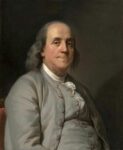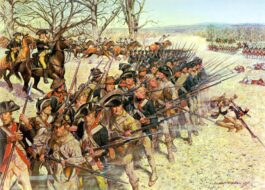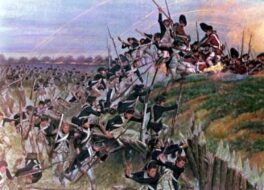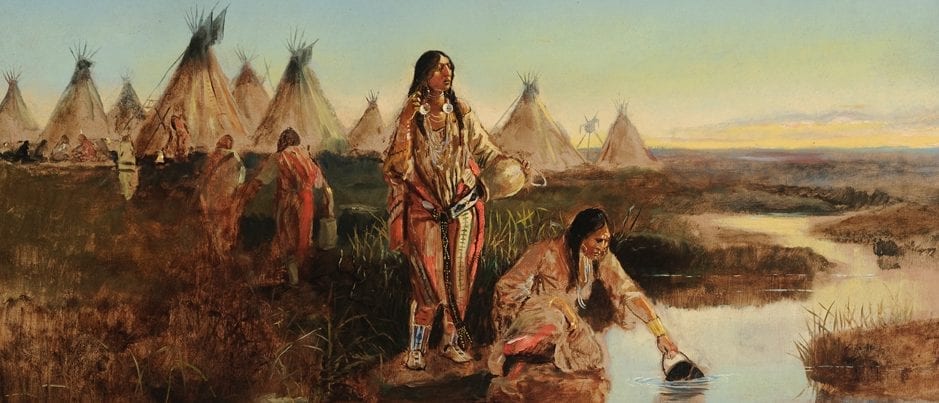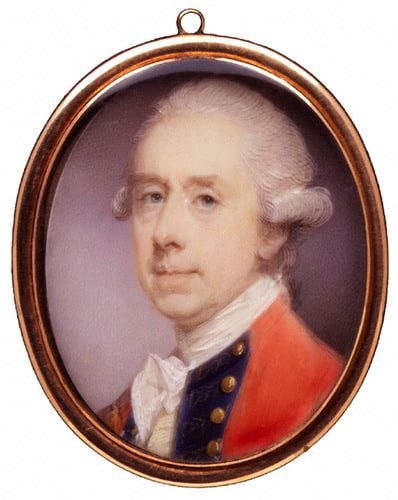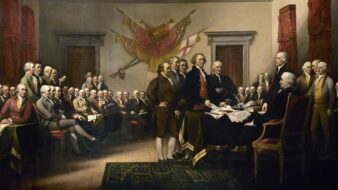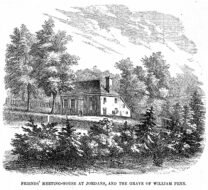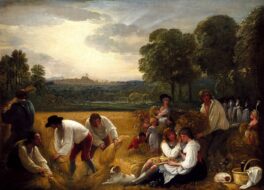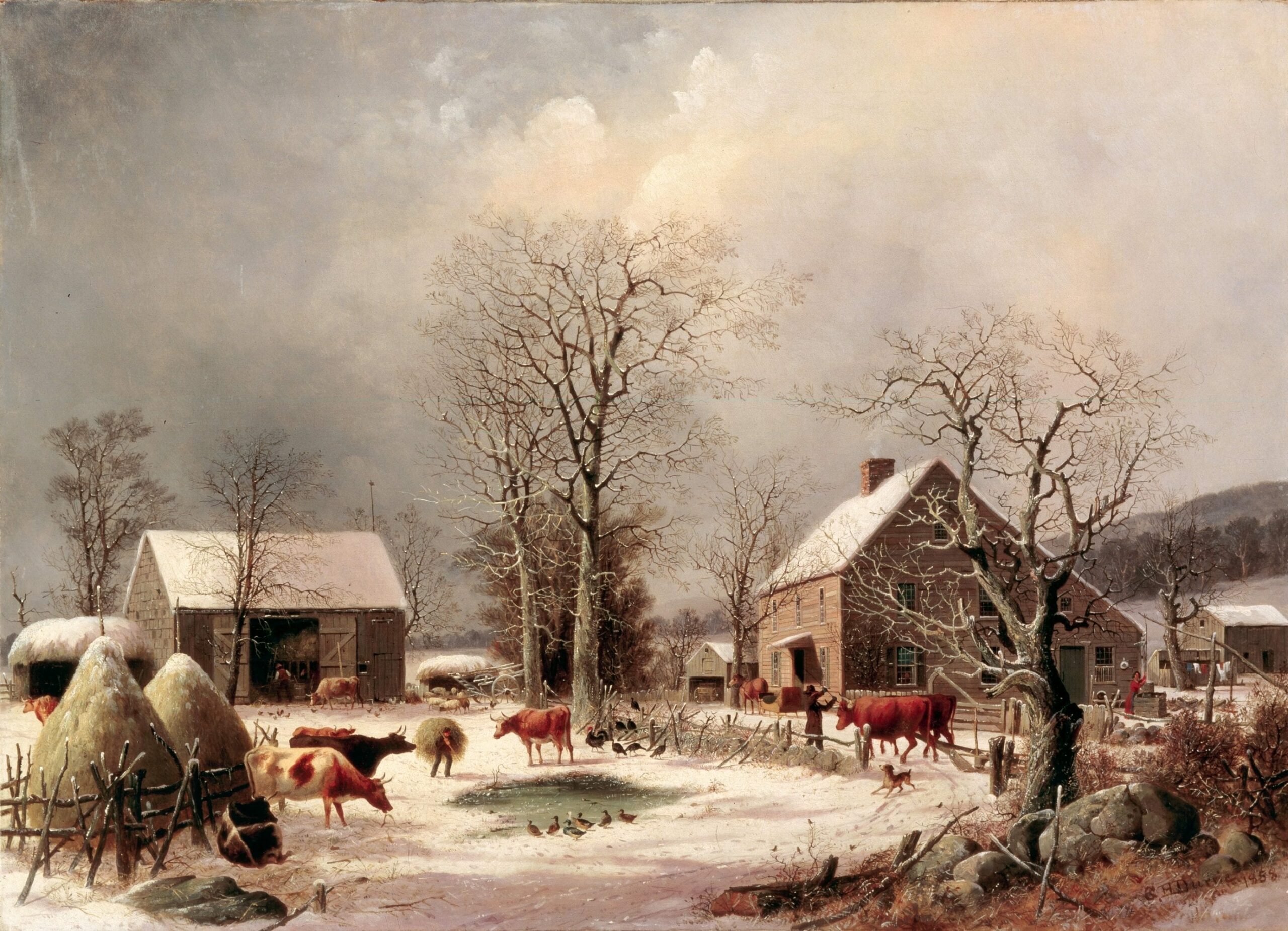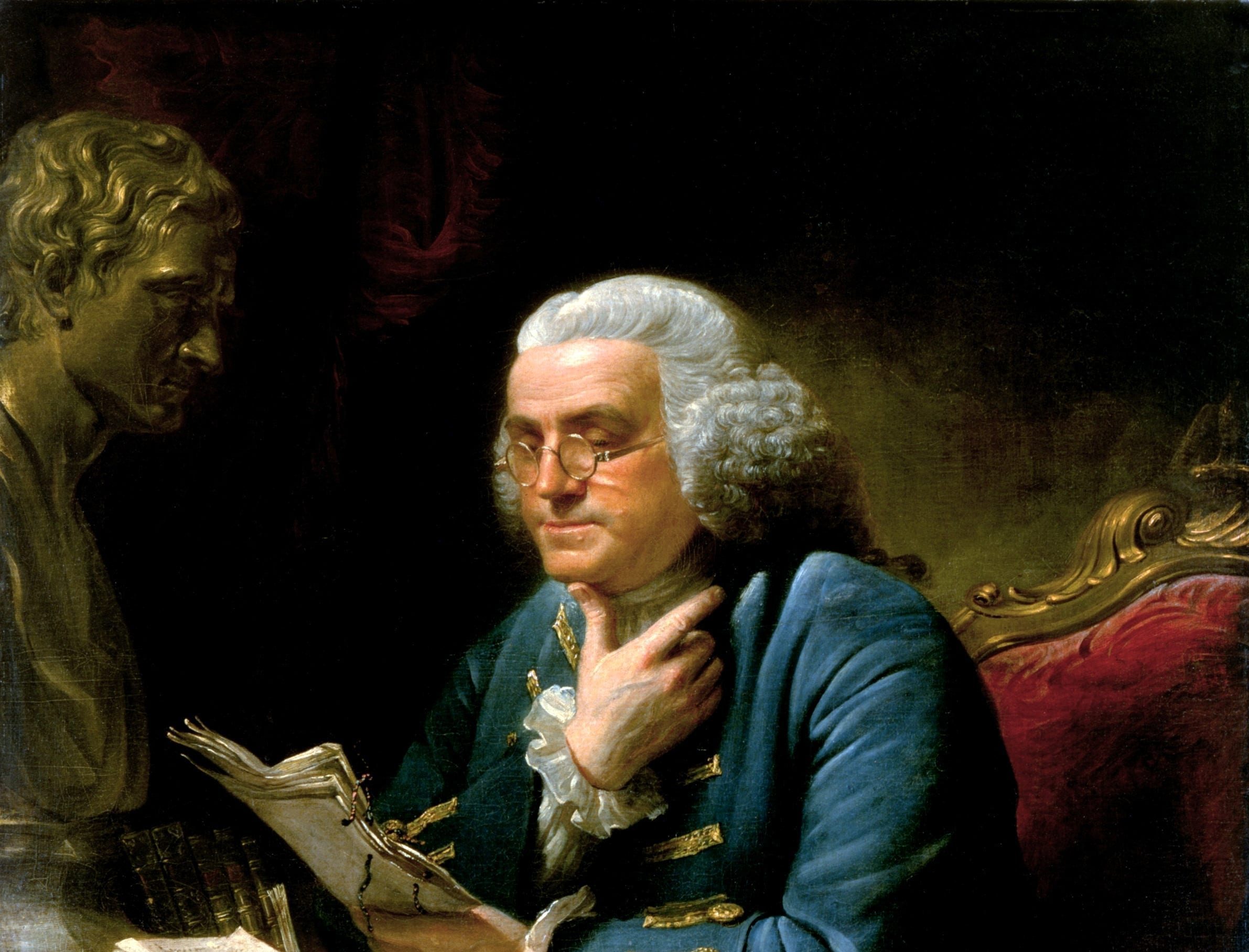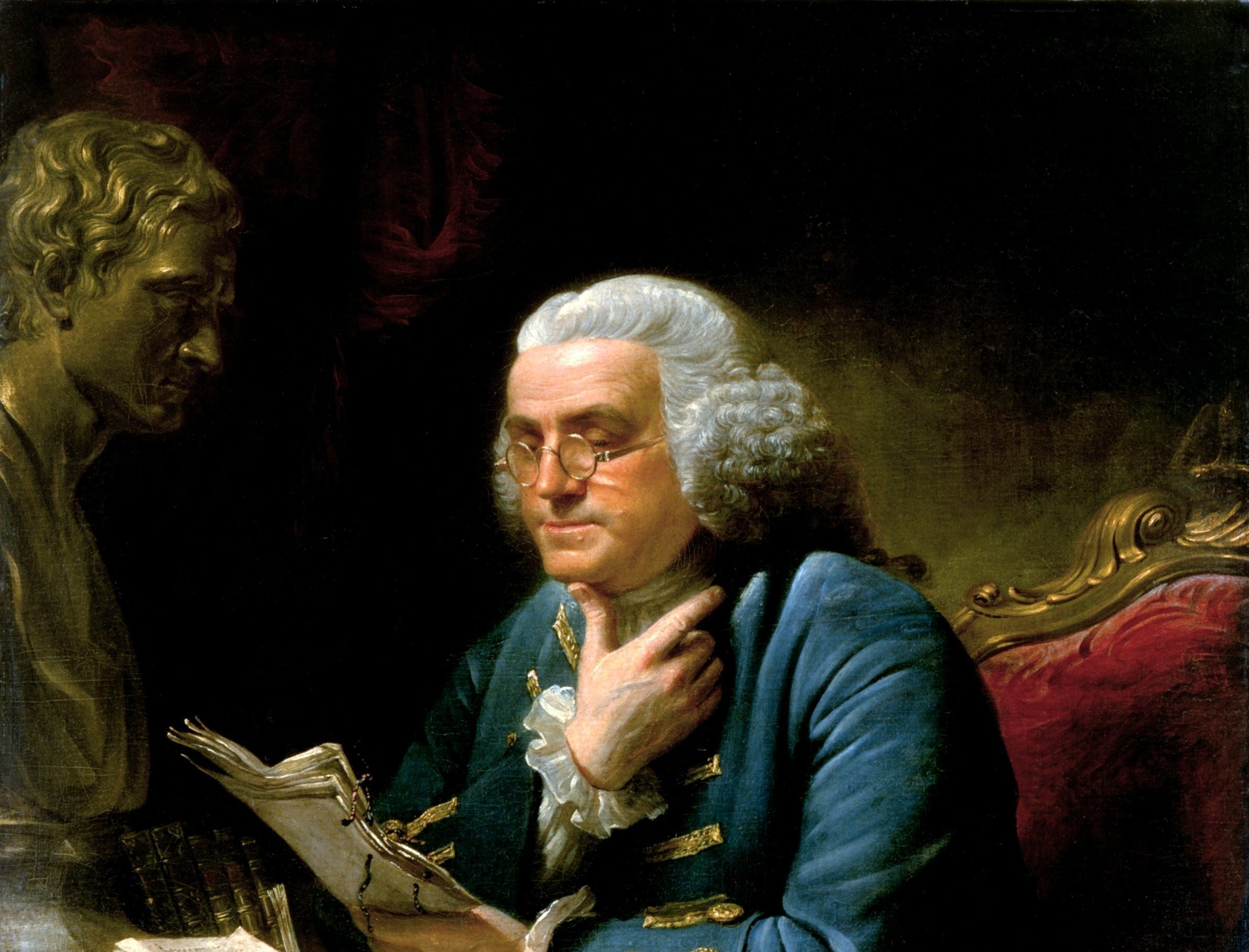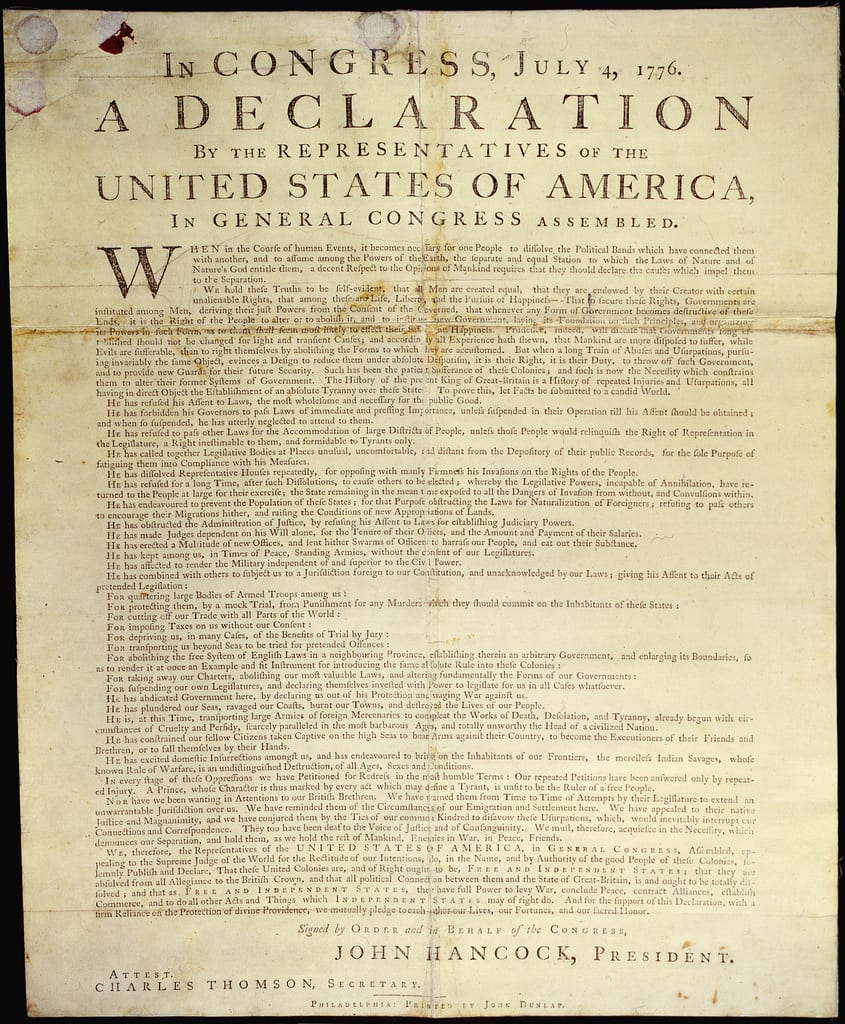
No related resources
Introduction
The following excerpts express some of the contending views of religion and politics characteristic of the Founding. Jefferson, who thought a great deal about the relationship between politics and religion, even contended with himself. In Notes on the State of Virginia, the only book that Jefferson published, when speaking of nature, Jefferson stressed its law abiding, unvarying character; yet when speaking of morality and politics (the issue of slavery), he called upon divine intervention, that is, for God to intervene in the ordinary, orderly workings of the world. The Declaration of Independence also contains both views of God’s relationship to the world and politics, referring to the Creator, the Supreme Judge, as well as to Providence, but also to the laws of nature and of Nature’s God. Again, in Notes on the State of Virginia, Jefferson wrote that the only firm basis for liberty was the belief that it was a gift of God. This is a view echoed in Washington’s Farewell Address, the Northwest Ordinance and Benjamin Rush’s[1] discussion of education in the new republic. The Declaration, on the other hand, derives liberty by a rational argument from the premise of human equality. It is possible to overstress this difference, of course, since if God created men equal and gave them a capacity to reason, then we might say that the Declaration also presents liberty as the gift of God. Differences among the Founders appear sharpest, perhaps, in what Jefferson and Rush had to say about education. While Rush thought the Bible and religion should be the basis of a republican education, Jefferson argued to exclude the Bible in favor of the study of history and secular authors. All agreed that religious liberty was essential to free government (see Washington’s letter to the Hebrew Congregation of Newport, Rhode Island (1790)), but Jefferson’s views represented those who were most inclined to separate religion and politics.
Declaration of Independence
IN CONGRESS, July 4, 1776.
The unanimous Declaration of the thirteen united States of America,
When in the Course of human events, it becomes necessary for one people to dissolve the political bands which have connected them with another, and to assume among the powers of the earth, the separate and equal station to which the Laws of Nature and of Nature’s God entitle them, a decent respect to the opinions of mankind requires that they should declare the causes which impel them to the separation.
We hold these truths to be self-evident, that all men are created equal, that they are endowed by their Creator with certain unalienable Rights, that among these are Life, Liberty and the pursuit of Happiness.—That to secure these rights, Governments are instituted among Men, deriving their just powers from the consent of the governed,— That whenever any Form of Government becomes destructive of these ends, it is the Right of the People to alter or to abolish it, and to institute new Government, laying its foundation on such principles and organizing its powers in such form, as to them shall seem most likely to effect their Safety and Happiness. Prudence, indeed, will dictate that Governments long established should not be changed for light and transient causes; and accordingly all experience hath shewn, that mankind are more disposed to suffer, while evils are sufferable, than to right themselves by abolishing the forms to which they are accustomed. But when a long train of abuses and usurpations, pursuing invariably the same Object evinces a design to reduce them under absolute Despotism, it is their right, it is their duty, to throw off such Government, and to provide new Guards for their future security. —Such has been the patient sufferance of these Colonies; and such is now the necessity which constrains them to alter their former Systems of Government. The history of the present King of Great Britain is a history of repeated injuries and usurpations, all having in direct object the establishment of an absolute Tyranny over these States….
…We, therefore, the Representatives of the United States of America, in General Congress, Assembled, appealing to the Supreme Judge of the world for the rectitude of our intentions, do, in the Name, and by Authority of the good People of these Colonies, solemnly publish and declare, That these United Colonies are, and of Right ought to be Free and Independent States; that they are Absolved from all Allegiance to the British Crown, and that all political connection between them and the State of Great Britain, is and ought to be totally dissolved; and that as Free and Independent States, they have full Power to levy War, conclude Peace, contract Alliances, establish Commerce, and to do all other Acts and Things which Independent States may of right do. And for the support of this Declaration, with a firm reliance on the protection of divine Providence, we mutually pledge to each other our Lives, our Fortunes and our sacred Honor.
Notes on the State of Virginia (1787)
Thomas Jefferson
Query VI, A Notice of the Mines and other Subterranean Riches; Its Trees, Plants, Fruits, etc
…Near the eastern foot of the North mountain are immense bodies of schist, containing impressions of shells in a variety of forms. I have received petrified shells of very different kinds from the first sources of the Kentucky, which bear no resemblance to any I have ever seen on the tide-waters. It is said that shells are found in the Andes, in South-America, fifteen thousand feet above the level of the ocean. This is considered by many, both of the learned and unlearned, as a proof of an universal deluge. To the many considerations opposing this opinion, the following may be added. The atmosphere, and all its contents, whether of water, air, or other matters, gravitate to the earth; that is to say, they have weight. Experience tells us, that the weight of all these together never exceeds that of a column of mercury of 31 inches height, which is equal to one of rain-water of 35 feet high. If the whole contents of the atmosphere then were water, instead of what they are, it would cover the globe but 35 feet deep; but as these waters, as they fell, would run into the seas, the superficial measure of which is to that of the dry parts of the globe as two to one, the seas would be raised only 52 ½ feet above their present level, and of course would overflow the lands to that height only. In Virginia this would be a very small proportion even of the champaign country, the banks of our tide-waters being frequently, if not generally, of a greater height. Deluges beyond this extent then, as for instance, to the North mountain or to Kentucky, seem out of the laws of nature. But within it they may have taken place to a greater or less degree, in proportion to the combination of natural causes which may be supposed to have produced them. History renders probable some instances of a partial deluge in the country lying round the Mediterranean sea. It has been often supposed, and is not unlikely, that that sea was once a lake. While such, let us admit an extraordinary collection of the waters of the atmosphere from the other parts of the globe to have been discharged over that and the countries whose waters run into it. Or without supposing it a lake, admit such an extraordinary collection of the waters of the atmosphere, and an influx of waters from the Atlantic ocean, forced by long continued Western winds. That lake, or that sea, may thus have been so raised as to overflow the low lands adjacent to it, as those of Egypt and Armenia, which, according to a tradition of the Egyptians and Hebrews, were overflowed about 2300 years before the Christian era; those of Attica,[1] said to have been overflowed in the time of Ogyges,[2] about 500 years later; and those of Thessaly, in the time of Deucalion, still 300 years posterior. But such deluges as these will not account for the shells found in the higher lands. A second opinion has been entertained, which is, that, in times anterior to the records either of history or tradition, the bed of the ocean, the principal residence of the shelled tribe, has, by some great convulsion of nature, been heaved to the heights at which we now find shells and other remains of marine animals. The favorers of this opinion do well to suppose the great events on which it rests to have taken place beyond all the eras of history; for within these, certainly none such are to be found: and we may venture to say further, that no fact has taken place, either in our own days, or in the thousands of years recorded in history, which proves the existence of any natural agents, within or without the bowels of the earth, of force sufficient to heave, to the height of 15,000 feet, such masses as the Andes. The difference between the power necessary to produce such an effect, and that which shuffled together the different parts of Calabria in our days,[3] is so immense, that, from the existence of the latter we are not authorized to infer that of the former.
- de Voltaire has suggested a third solution of this difficulty (Quest. encycl. Coquilles).[4] He cites an instance in Touraine, where, in the space of 80 years, a particular spot of earth had been twice metamorphosed into soft stone, which had become hard when employed in building. In this stone shells of various kinds were produced, discoverable at first only with the microscope, but afterwards growing with the stone. From this fact, I suppose, he would have us infer, that, besides the usual process for generating shells by the elaboration of earth and water in animal vessels, nature may have provided an equivalent operation, by passing the same materials through the pores of calcareous earths and stones: as we see calcareous dropstones generating every day by the percolation of water through lime-stone, and new marble forming in the quarries from which the old has been taken out; and it might be asked, whether it is more difficult for nature to shoot the calcareous juice into the form of a shell, than other juices into the forms of crystals, plants, animals, according to the construction of the vessels through which they pass? There is a wonder somewhere. Is it greatest on this branch of the dilemma; on that which supposes the existence of a power, of which we have no evidence in any other case; or on the first, which requires us to believe the creation of a body of water, and its subsequent annihilation? The establishment of the instance, cited by M. de Voltaire, of the growth of shells unattached to animal bodies, would have been that of his theory. But he has not established it. He has not even left it on ground so respectable as to have rendered it an object of enquiry to the literati of his own country. Abandoning this fact, therefore, the three hypotheses are equally unsatisfactory; and we must be contented to acknowledge, that this great phenomenon is as yet unsolved. Ignorance is preferable to error; and he is less remote from the truth who believes nothing, than he who believes what is wrong.
Query XIV, The Administration of Justice and the Description of the Laws
…The general objects of this law [“to diffuse knowledge more generally through the mass of the people”] are to provide an education adapted to the years, to the capacity, and the condition of every one, and directed to their freedom and happiness. Specific details were not proper for the law. These must be the business of the visitors entrusted with its execution. The first stage of this education being the schools of the hundreds, wherein the great mass of the people will receive their instruction, the principal foundations of future order will be laid here. Instead therefore of putting the Bible and Testament into the hands of the children, at an age when their judgments are not sufficiently matured for religious enquiries, their memories may here be stored with the most useful facts from Grecian, Roman, European and American history. The first elements of morality too may be instilled into their minds; such as, when further developed as their judgments advance in strength, may teach them how to work out their own greatest happiness, by showing them that it does not depend on the condition of life in which chance has placed them, but is always the result of a good conscience, good health, occupation, and freedom in all just pursuits.
Query XVII, Religion
…The error seems not sufficiently eradicated, that the operations of the mind, as well as the acts of the body, are subject to the coercion of the laws. But our rulers can have authority over such natural rights only as we have submitted to them. The rights of conscience we never submitted, we could not submit. We are answerable for them to our God. The legitimate powers of government extend to such acts only as are injurious to others. But it does me no injury for my neighbor to say there are twenty gods, or no god. It neither picks my pocket nor breaks my leg. If it be said, his testimony in a court of justice cannot be relied on, reject it then, and be the stigma on him. Constraint may make him worse by making him a hypocrite, but it will never make him a truer man. It may fix him obstinately in his errors, but will not cure them. Reason and free enquiry are the only effectual agents against error. Give a loose to them, they will support the true religion, by bringing every false one to their tribunal, to the test of their investigation. They are the natural enemies of error, and of error only. Had not the Roman government permitted free enquiry, Christianity could never have been introduced. Had not free enquiry been indulged, at the era of the reformation, the corruptions of Christianity could not have been purged away. If it be restrained now, the present corruptions will be protected, and new ones encouraged…. Reason and experiment have been indulged, and error has fled before them. It is error alone which needs the support of government. Truth can stand by itself.
Subject opinion to coercion: whom will you make your inquisitors? Fallible men; men governed by bad passions, by private as well as public reasons. And why subject it to coercion? To produce uniformity. But is uniformity of opinion desirable? No more than of face and stature. Introduce the bed of Procrustes then, and as there is danger that the large men may beat the small, make us all of a size, by lopping the former and stretching the latter. Difference of opinion is advantageous in religion. The several sects perform the office of a Censor morum[5] over each other. Is uniformity attainable? Millions of innocent men, women, and children, since the introduction of Christianity, have been burnt, tortured, fined, imprisoned; yet we have not advanced one inch towards uniformity.
What has been the effect of coercion? To make one half the world fools, and the other half hypocrites. To support roguery and error all over the earth. Let us reflect that it is inhabited by a thousand millions of people. That these profess probably a thousand different systems of religion. That ours is but one of that thousand. That if there be but one right, and ours that one, we should wish to see the 999 wandering sects gathered into the fold of truth. But against such a majority we cannot effect this by force. Reason and persuasion are the only practicable instruments. To make way for these, free enquiry must be indulged; and how can we wish others to indulge it while we refuse it ourselves.
But every state, says an inquisitor, has established some religion. No two, say I, have established the same. Is this a proof of the infallibility of establishments? Our sister states of Pennsylvania and New York, however, have long subsisted without any establishment at all. The experiment was new and doubtful when they made it. It has answered beyond conception. They flourish infinitely. Religion is well supported; of various kinds, indeed, but all good enough; all sufficient to preserve peace and order: or if a sect arises, whose tenets would subvert morals, good sense has fair play, and reasons and laughs it out of doors, without suffering the state to be troubled with it. They do not hang more malefactors than we do. They are not more disturbed with religious dissensions. On the contrary, their harmony is unparalleled, and can be ascribed to nothing but their unbounded tolerance, because there is no other circumstance in which they differ from every nation on earth. They have made the happy discovery, that the way to silence religious disputes, is to take no notice of them. Let us too give this experiment fair play, and get rid, while we may, of those tyrannical laws. It is true, we are as yet secured against them by the spirit of the times. I doubt whether the people of this country would suffer an execution for heresy, or a three years imprisonment for not comprehending the mysteries of the Trinity. But is the spirit of the people an infallible, a permanent reliance? Is it government? Is this the kind of protection we receive in return for the rights we give up? Besides, the spirit of the times may alter, will alter. Our rulers will become corrupt, our people careless. A single zealot may commence persecutor, and better men be his victims. It can never be too often repeated, that the time for fixing every essential right on a legal basis is while our rulers are honest, and ourselves united. From the conclusion of this war we shall be going down hill. It will not then be necessary to resort every moment to the people for support. They will be forgotten, therefore, and their rights disregarded. They will forget themselves, but in the sole faculty of making money, and will never think of uniting to effect a due respect for their rights. The shackles, therefore, which shall not be knocked off at the conclusion of this war, will remain on us long, will be made heavier and heavier, till our rights shall revive or expire in a convulsion.
Query XVIII, Manners
It is difficult to determine on the standard by which the manners of a nation may be tried, whether catholic, or particular. It is more difficult for a native to bring to that standard the manners of his own nation, familiarized to him by habit. There must doubtless be an unhappy influence on the manners of our people produced by the existence of slavery among us….
…And can the liberties of a nation be thought secure when we have removed their only firm basis, a conviction in the minds of the people that these liberties are of the gift of God? That they are not to be violated but with his wrath? Indeed I tremble for my country when I reflect that God is just: that his justice cannot sleep for ever: that considering numbers, nature and natural means only, a revolution of the wheel of fortune, an exchange of situation, is among possible events: that it may become probable by supernatural interference! The Almighty has no attribute which can take side with us in such a contest. But it is impossible to be temperate and to pursue this subject through the various considerations of policy, of morals, of history natural and civil. We must be contented to hope they will force their way into every one’s mind. I think a change already perceptible, since the origin of the present revolution. The spirit of the master is abating, that of the slave rising from the dust, his condition mollifying, the way I hope preparing, under the auspices of heaven, for a total emancipation, and that this is disposed, in the order of events, to be with the consent of the masters, rather than by their extirpation.
Northwest Ordinance (1787)
…Sec. 14. It is hereby ordained and declared by the authority aforesaid, That the following articles shall be considered as articles of compact between the original States and the people and States in the said territory and forever remain unalterable, unless by common consent, to wit:
Art. 1. No person, demeaning himself in a peaceable and orderly manner, shall ever be molested on account of his mode of worship or religious sentiments, in the said territory….
Art. 3. Religion, morality, and knowledge, being necessary to good government and the happiness of mankind, schools and the means of education shall forever be encouraged. The utmost good faith shall always be observed towards the Indians; their lands and property shall never be taken from them without their consent; and, in their property, rights, and liberty, they shall never be invaded or disturbed, unless in just and lawful wars authorized by Congress; but laws founded in justice and humanity, shall from time to time be made for preventing wrongs being done to them, and for preserving peace and friendship with them….
The Farewell Address (1796)
George Washington
…The name of American, which belongs to you in your national capacity, must always exalt the just pride of patriotism more than any appellation derived from local discriminations. With slight shades of difference, you have the same religion, manners, habits, and political principles. You have in a common cause fought and triumphed together; the independence and liberty you possess are the work of joint counsels, and joint efforts of common dangers, sufferings, and successes….
…Of all the dispositions and habits which lead to political prosperity, religion and morality are indispensable supports. In vain would that man claim the tribute of patriotism, who should labor to subvert these great pillars of human happiness, these firmest props of the duties of men and citizens. The mere politician, equally with the pious man, ought to respect and to cherish them. A volume could not trace all their connections with private and public felicity. Let it simply be asked: Where is the security for property, for reputation, for life, if the sense of religious obligation desert the oaths which are the instruments of investigation in courts of justice? And let us with caution indulge the supposition that morality can be maintained without religion. Whatever may be conceded to the influence of refined education on minds of peculiar structure, reason and experience both forbid us to expect that national morality can prevail in exclusion of religious principle.
It is substantially true that virtue or morality is a necessary spring of popular government. The rule, indeed, extends with more or less force to every species of free government. Who that is a sincere friend to it can look with indifference upon attempts to shake the foundation of the fabric?
Promote then, as an object of primary importance, institutions for the general diffusion of knowledge. In proportion as the structure of a government gives force to public opinion, it is essential that public opinion should be enlightened….
Of the Mode of Education Proper in a Republic (1798)
Benjamin Rush
I proceed in the next place, to enquire, what mode of education we shall adopt so as to secure to the state all the advantages that are to be derived from the proper instruction of youth; and here I beg leave to remark, that the only foundation for a useful education in a republic is to be laid in Religion. Without this there can be no virtue, and without virtue there can be no liberty, and liberty is the object and life of all republican governments.
Such is my veneration for every religion that reveals the attributes of the Deity, or a future state of rewards and punishments, that I had rather see the opinions of Confucius or Mohamed inculcated upon our youth, than see them grow up wholly devoid of a system of religious principles. But the religion I mean to recommend in this place, is that of the New Testament.
It is foreign to my purpose to hint at the arguments which establish the truth of the Christian revelation. My only business is to declare, that all its doctrines and precepts are calculated to promote the happiness of society, and the safety and well being of civil government. A Christian cannot fail of being a republican. The history of the creation of man, and of the relation of our species to each other by birth, which is recorded in the Old Testament, is the best refutation that can be given to the divine right of kings, and the strongest argument that can be used in favor of the original and natural equality of all mankind. A Christian, I say again, cannot fail of being a republican, for every precept of the Gospel inculcates those degrees of humility, self-denial, and brotherly kindness, which are directly opposed to the pride of monarchy and the pageantry of a court. A Christian cannot fail of being useful to the republic, for his religion teacheth him, that no man “liveth to himself.” And lastly, a Christian cannot fail of being wholly inoffensive, for his religion teacheth him, in all things to do to others what he would wish, in like circumstances, they should do to him.
- 1. Rush (1746–1813) signed the Declaration of Independence and was a political leader, social reformer and educator.
- 2. The region of Greece centered around Athens.
- 3. Mythological king of ancient Greece whose name is associated with Greek accounts of the Great Flood.
- 4. On February 5, 1783, an earthquake of an estimated magnitude of 7.5 or 8 devastated the southeastern portion of Italy called Calabria. This and aftershocks in the month following dramatically changed the topography of the region.
- 5. The entry on “Shells” in Voltaire’s Questions on the Encyclopedia.
- 6. Censor of morals

Conversation-based seminars for collegial PD, one-day and multi-day seminars, graduate credit seminars (MA degree), online and in-person.
